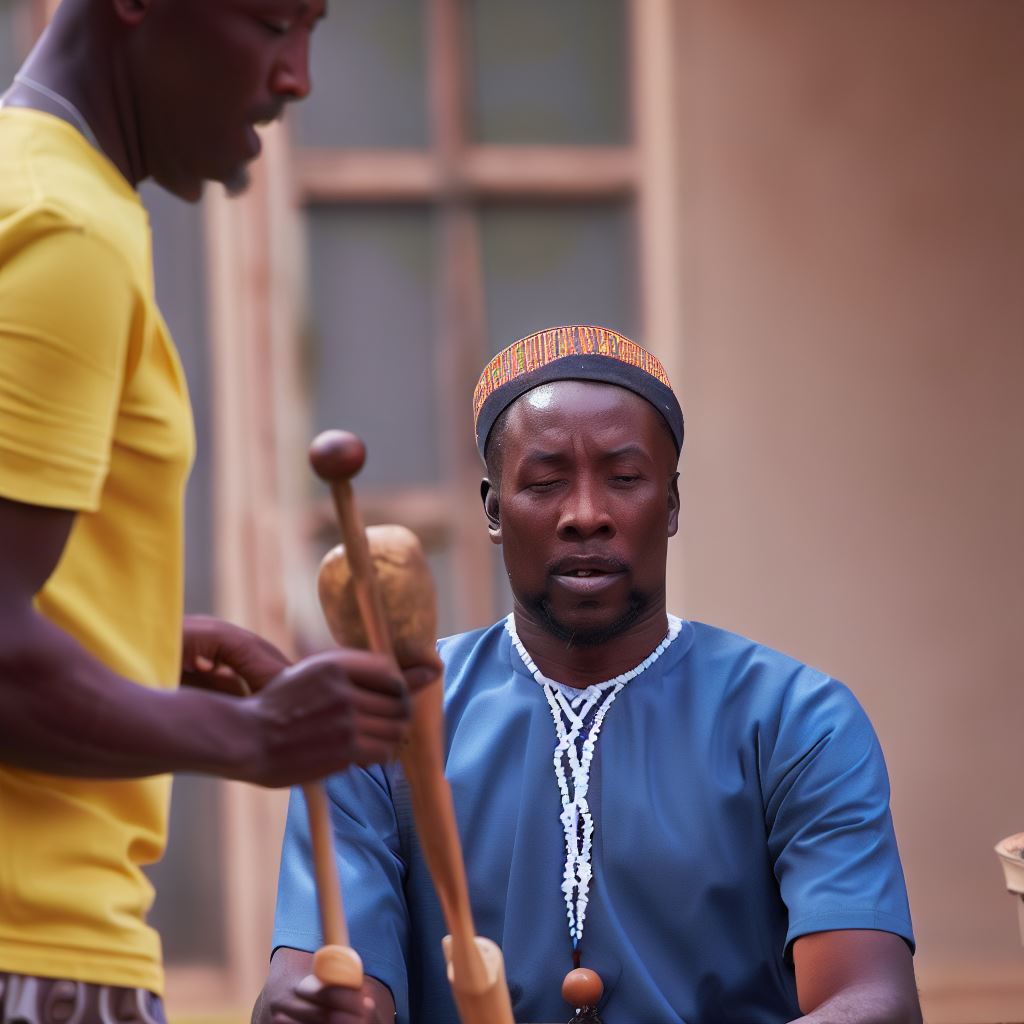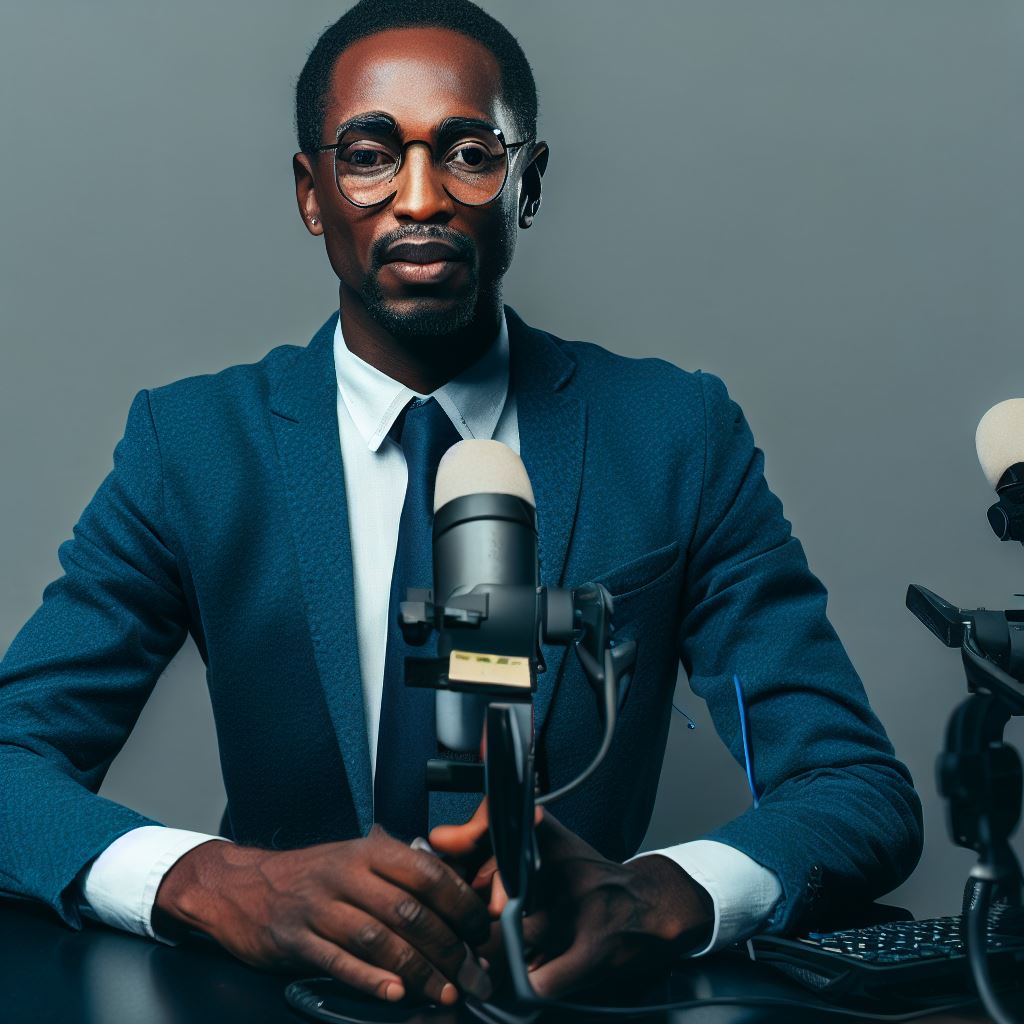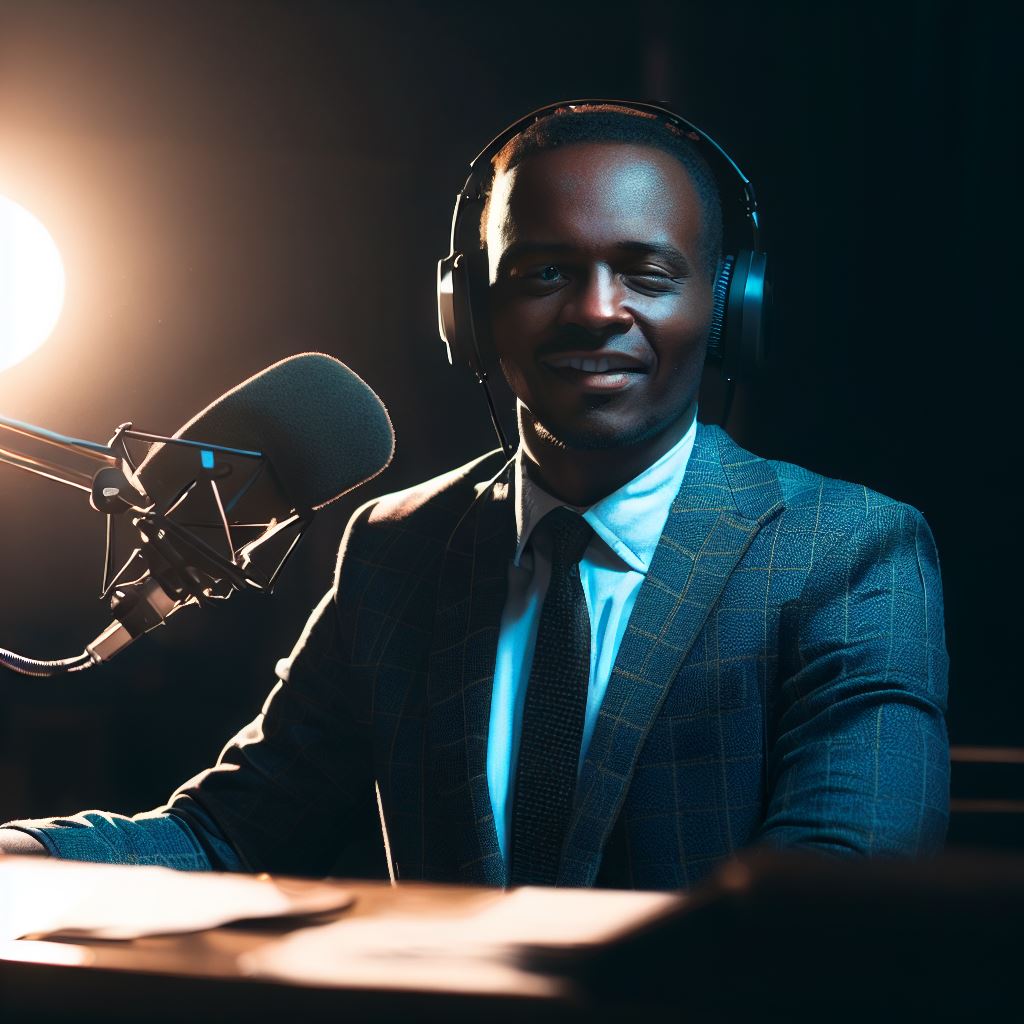Introduction
Let’s explore physical education policies in Nigeria: A deep dive.
Physical education policies in Nigeria play a crucial role in shaping the education system.
Physical education policies in Nigeria play a pivotal role in shaping the holistic development of its citizens.
Rooted in the recognition of the profound benefits of physical activity, these policies encompass a wide spectrum of directives and guidelines that govern the teaching and practice of physical education within the country’s educational framework.
It is important to discuss this topic as it directly impacts the well-being and development of Nigerian students.
This deep dive aims to dissect and analyze the various dimensions of Nigeria’s physical education policies, shedding light on their historical evolution, current implementation strategies, challenges faced, and the potential for future enhancements.
By delving into these intricacies, we gain a comprehensive understanding of how Nigeria is fostering a culture of physical well-being, not only nurturing healthy individuals but also contributing to a more robust and vibrant society as a whole.
Historical Overview of Physical Education in Nigeria
Overview of the history of physical education in Nigeria
Physical education has a long history in Nigeria, dating back to ancient times. Ancient Nigerian civilizations recognized the importance of physical fitness and incorporated it into daily life.
Traditional Nigerian sports, such as wrestling and hunting, emphasized physical strength and skill.
The evolution of physical education policies in the country
During the colonial period, physical education was introduced to Nigerian schools by the British.
The British implemented a European-style physical education curriculum, focusing on organized sports and exercises.
However, this curriculum did not adequately address the needs and interests of the Nigerian population.
After gaining independence in 1960, Nigeria began to establish its own physical education policies. The government recognized the importance of physical education for national development.
In 1962, Nigeria implemented the National Sports Commission to oversee physical education and sports activities.
The National Sports Commission aimed to promote physical fitness, talent development, and international sporting success.
Physical education became a compulsory subject in Nigerian schools, reflecting its growing importance.
However, the implementation of physical education policies faced challenges due to inadequate funding and resources.
Despite challenges, Nigeria continued to prioritized physical eduction for national development.
In the 80s, National Institute for Sports improved education.
90s saw a shift to multi-sport approach, promoting diversity. Policies emphasized gender equality.
Today, physical education in Nigeria continues to evolve to meet the changing needs of society.
The government emphasizes the importance of physical education in combating health issues, such as obesity and sedentary lifestyles.
Efforts are being made to integrate modern technology and innovative teaching methods into physical education programs.
Despite these advancements, challenges such as inadequate infrastructure and limited access to equipment still exist.
However, the passion and enthusiasm for physical education among the Nigerian population remain strong.
Nigeria’s rich history and cultural heritage continue to influence physical education policies in the country.
In short, physical education in Nigeria has a long and diverse history.
From ancient Nigerian civilizations to the present day, physical education has played a vital role in promoting physical fitness, talent development, and national development.
Although challenges exist, the Nigerian government’s commitment to improving physical education programs and policies ensures its continued evolution and progress.
Read: Technology in Physical Education: Nigeria’s Approach
Current Physical Education Policies in Nigeria
The current physical education policies in Nigeria
The current physical education policies in Nigeria aim to promote and enhance the overall well-being of students.
These policies prioritize the development of physical competencies, healthy lifestyle habits, and sports participation.
The goals and objectives of these policies
The goals of these policies include fostering regular physical activity, improving physical fitness levels, and promoting lifelong health.
The objectives of the policies include educating students on the benefits of physical activity and providing opportunities for skill development.
Additionally, the policies encourage the inclusion of physical education in the curriculum for all schools across Nigeria.
The policies also emphasize the importance of trained physical education teachers to ensure effective implementation.
Challenges faced in implementing these policies
Challenges faced in implementing these policies include inadequate funding for sports facilities and equipment in schools.
Furthermore, a lack of awareness and support from parents and school administrators hinders the successful implementation of the policies.
Limited time allocation to physical education in the curriculum poses a challenge to adequately address the goals and objectives.
Inconsistent enforcement and monitoring of the policies by relevant authorities hinder the effectiveness of the initiatives.
Other challenges include overcrowded classrooms, limited space for physical activities, and a lack of trained physical education teachers.
Despite these challenges, the government continues to work towards improving and implementing physical education policies in Nigeria.
Efforts are being made to increase funding for sports facilities and equipment in schools.
Sensitization campaigns are being conducted to create awareness among parents and school administrators about the importance of physical education.
The government is also exploring partnerships with non-governmental organizations to provide training programs for physical education teachers.
Time allocation for physical education is being reviewed to ensure sufficient and quality instructional time.
Monitoring and evaluation processes are being strengthened to ensure compliance with the policies and measure their impact.
The current physical education policies in Nigeria aim to promote physical well-being and instill healthy habits.
The goals and objectives focus on regular physical activity, fitness improvement, and the inclusion of physical education in the curriculum.
Despite challenges, the government is taking steps to address these issues and improve the implementation of these policies.
Read: Gender Roles in Physical Education Teaching in Nigeria
Physical Education Curriculum in Nigeria
An overview of the physical education curriculum in Nigeria
The physical education curriculum in Nigeria is designed to promote health and physical fitness.
Key components
The curriculum includes activities such as athletics, gymnastics, team sports, and dance.
Subject Areas Covered
Other areas covered include health education, nutrition, first aid, and safety.
Inclusiveness and Diversity
The curriculum aims to cater to the diverse needs of students with varying abilities and interests.
Inclusive Approach
It encourages the participation of both boys and girls, promoting gender equality.
Adaptability
The curriculum is flexible to accommodate students with disabilities, ensuring inclusivity.
Integration of Values
The curriculum emphasizes the development of discipline, sportsmanship, and teamwork.
National Integration
Physical education promotes unity and understanding among students from diverse cultural backgrounds.
Sense of Belonging
Involvement in physical activities instills a sense of belongingness among students.
Community Engagement
Physical education programs may involve community leaders and local sports clubs.
Collaboration
The curriculum encourages cooperation between physical education teachers and other subject teachers.
Assessment
Students are assessed not only on physical performance but also on knowledge of health concepts.
Continuous Evaluation
Assessment is done through periodic tests, assignments, and practical demonstrations.
Challenges
The lack of adequate facilities and resources remains a challenge in implementing the curriculum.
Government Support
The Nigerian government is working towards improving infrastructure and funding for physical education.
Teacher Training
Ongoing training for physical education teachers ensures effective delivery of the curriculum.
Well-Rounded Education
Physical education contributes to the holistic development of students.
Benefits
It promotes physical health, mental well-being, and enhances cognitive abilities.
Life Skills
Through physical education, students learn essential life skills such as communication and problem-solving.
Transition to Adulthood
Physical education equips students with the necessary skills for an active and healthy lifestyle.
In essence, the physical education curriculum in Nigeria aims to provide a comprehensive and inclusive approach to promote health, fitness, and overall well-being among students.
It encompasses various subject areas and activities, catering to the diverse needs and interests of students.
Despite challenges, the Nigerian government’s commitment to improving infrastructure and supporting teacher training reflects a determination to enhance the delivery of physical education.
By providing students with opportunities for physical, mental, and social development, physical education plays a vital role in preparing them for a healthy and active transition to adulthood.
Read: Physical Education in Nigeria: Urban vs Rural Schools
Infrastructural Support for Physical Education
The infrastructural support available for physical education in Nigeria
In Nigeria, there is limited infrastructural support for physical education.
The availability and condition of sports facilities and equipment
The availability and condition of sports facilities and equipment are major concerns.
Many schools lack proper infrastructure and facilities for physical education. Some schools may have basic facilities, but they are often poorly maintained.
This lack of infrastructure hinders the quality of physical education in Nigeria. Sports facilities such as football fields, basketball courts, and running tracks are rare.
Even when available, they are often in poor condition, limiting their usability. The scarcity of sports equipment further exacerbates the problem.
Schools struggle to provide necessary equipment like balls, bats, and nets for various sports.
Due to limited funding, schools cannot afford to invest in sports infrastructure.
The impact of these factors on the quality of physical education
The lack of infrastructure affects students’ participation and interest in physical education. Without proper facilities, students are unable to explore different sports and activities.
This limits their exposure to a variety of physical activities and sports. The impact of inadequate infrastructure is also felt in the quality of coaching.
Without proper training spaces, coaches find it challenging to conduct effective sessions. The absence of sports facilities makes it difficult to organize competitive events.
Lack of infrastructure also affects the safety of students during physical activities.
Publish Your Professional Profile, Business or Brand
Showcase your expertise, gain trust, and boost visibility instantly on Professions.ng.
Publish NowInsufficient playing areas may increase the risk of injuries during sports sessions. The poor condition of equipment further compromises the safety of students.
The government plays a crucial role in providing infrastructural support for physical education. Educational policies should prioritize the development and maintenance of sports infrastructure.
Increased investment in sports facilities and equipment is necessary to improve physical education. Collaboration with private sponsors and sports organizations can help bridge the gap.
It is essential to create awareness about the importance of physical education infrastructure.
Communities can come together to fundraise and support the development of sports facilities. The media can also play a role in highlighting the need for infrastructural support.
With improved infrastructure, the quality of physical education can be significantly enhanced. Students will have access to better facilities and a wider range of physical activities.
Talented athletes will have the opportunity to excel and represent Nigeria at various levels. Physical education will become more engaging and enjoyable for students.
The overall health and well-being of the youth will improve with better infrastructure in place.
It is crucial for Nigeria to invest in infrastructural support for physical education to nurture a healthier and more active future generation.
Read: Physical Fitness Standards in Nigerian Education System

Teacher Training and Professional Development
In Nigeria, physical education teachers have access to various training and professional development opportunities to enhance their skills and improve the quality of physical education in schools.
Training and Professional Development Opportunities
Regular workshops and seminars are organized by educational institutions and government bodies.
These events focus on curriculum updates, teaching methodologies, and the use of modern teaching aids.
Physical education teachers urged to attend events for improved skills.
Local and international conferences provide platforms for teachers to network and share best practices.
Collaboration with international organizations like UNESCO and FIFA also offers training programs for Nigerian physical education teachers.
Importance of Continuous Learning
Continuous learning is crucial for physical education teachers in Nigeria to keep up with evolving pedagogical practices and global trends.
By participating in professional development programs, teachers gain access to:
- Current research and evidence-based practices in physical education.
- Innovative teaching methods that engage and motivate students.
- The latest advancements in sports science and technology.
- Diverse perspectives from experienced educators in the field.
Continuous learning enables teachers to:
- Adapt their teaching strategies to meet the diverse learning needs of students.
- Create inclusive and safe learning environments that promote physical and mental well-being.
- Stay informed about advancements in sports equipment and technology to enhance student performance.
- Update their knowledge of health and safety guidelines to ensure student welfare.
- Develop leadership and mentoring skills to guide and support other teachers in the field.
Professional development also helps physical education teachers in:
- Building confidence and job satisfaction.
- Increasing their effectiveness in delivering quality physical education programs.
- Developing a holistic approach to physical education by integrating life skills and character development.
- Updating their understanding of cultural and social factors that influence physical activity participation.
- Promoting sportsmanship, teamwork, and fair play among students.
Physical education teachers who actively seek out professional development opportunities demonstrate a commitment to their profession and personal growth.
They contribute to the overall improvement of physical education policies and practices in Nigeria.
In general, Nigeria provides various training and professional development opportunities for physical education teachers to continuously enhance their knowledge and skills.
Continuous learning is essential for delivering quality physical education and ensuring the holistic development of Nigerian students.
Stakeholder Engagement and Collaboration
In promoting physical education in Nigeria, various stakeholders, including government bodies, educational institutions, and community organizations, have played a crucial role.
The involvement of various stakeholders, including government bodies, educational institutions, and community organizations, in promoting physical education
The involvement of government bodies cannot be undermined as they provide the necessary policies and regulations for physical education in the country.
These bodies include the Federal Ministry of Education, which formulates guidelines for physical education curricula and programs.
Educational institutions such as schools and universities also play a significant role in promoting physical education.
They incorporate physical education classes into their curriculum and provide facilities and equipment for students to engage in physical activities.
Community organizations have also contributed to the advancement of physical education policies in Nigeria.
Non-profit organizations, sports clubs, and local community centers organize sports events and campaigns to raise awareness about the importance of physical activity.
Importance of collaboration among these stakeholders to enhance physical education policies and implementation
Collaboration among these stakeholders is crucial to enhance physical education policies and ensure effective implementation.
Working together, they can develop comprehensive and inclusive physical education programs that cater to the needs of all individuals.
Government bodies and educational institutions need to collaborate closely to align physical education policies with curriculum requirements.
This collaboration prioritizes and allocates ample time for physical education in the education system.
Community organizations can provide valuable support to educational institutions by organizing sports tournaments, workshops, and health awareness programs.
These collaborative efforts will foster a culture of physical well-being among students.
By engaging stakeholders from different sectors, a holistic approach to physical education can be achieved.
This approach involves integrating physical education into various aspects of society, including schools, communities, and the government.
Collaboration among stakeholders will bring about a coordinated effort in implementing physical education policies.
This synergy will lead to better monitoring and evaluation of physical education programs, ensuring their effectiveness.
By leveraging the strengths of each stakeholder, a comprehensive and sustainable approach to physical education can be achieved.
It is through collaboration that physical education policies and practices can be improved and tailored to meet the diverse needs of Nigerian students and communities.
In review, the involvement of various stakeholders, including government bodies, educational institutions, and community organizations, is essential in promoting physical education in Nigeria.
Collaboration among these stakeholders is crucial to enhancing physical education policies, implementation, and creating a culture of physical well-being in the country.
Challenges and Opportunities
Implementing physical education policies in Nigeria faces various challenges and opportunities that impact the current state of physical education.
To improve this, potential solutions should be explored along with the role of technology and innovation in enhancing physical education practices.
Main Challenges Faced in Implementing Physical Education Policies in Nigeria
- Funding limitations: Insufficient funds allocated for physical education hinder its effective implementation in schools.
- Lack of infrastructure: Many schools lack proper sports facilities and equipment, making it difficult to conduct physical education classes.
- Inadequate training: Teachers often lack specialized training in physical education, impacting the quality of instruction provided.
- Low awareness and importance: Physical education is sometimes undervalued, resulting in limited support and allocation of resources.
- Gender disparities: Girls face cultural barriers that discourage their inclusion and participation in physical education activities.
- Overemphasis on academics: Academic pressure tends to overshadow the significance of physical education in the curriculum.
Potential Solutions and Opportunities to Improve the Current State of Physical Education
- Increased funding: Adequate financial resources should be allocated to promote infrastructure development, training programs, and the overall implementation of physical education policies.
- Improved infrastructure: Government and educational institutions should invest in building proper sports facilities and providing necessary equipment.
- Teacher training: Specialized training programs and workshops should be conducted to enhance teachers’ knowledge and skills in physical education.
- Public awareness campaigns: Highlighting the importance of physical education can create a positive mindset and garner support for its implementation.
- Policy advocacy: Stakeholders, including educators and policymakers, should advocate for policies that prioritize physical education in the curriculum.
- Encouraging inclusivity: Addressing cultural barriers and promoting gender equality can ensure equal opportunities for all students in physical education.
The Role of Technology and Innovation in Enhancing Physical Education Practices
Technology and innovation present significant opportunities for improving physical education practices in Nigeria. Some key areas where technology can contribute include:
- Virtual training platforms: Online platforms can provide students and teachers with access to training resources, tutorials, and virtual coaching sessions.
- Mobile applications: Educational apps can offer interactive lessons, fitness tracking, and personalized workout plans, making physical education engaging and accessible.
- Video analysis tools: Advanced video analysis tools can help analyze and improve students’ techniques, aiding in skill development and performance enhancement.
- Gamification elements: Incorporating gamification elements in physical education can make it more enjoyable, motivating students to actively participate.
- Wearable technology: Fitness trackers and smartwatches can monitor physical activity levels, heart rate, and provide real-time feedback to students and teachers.
By leveraging technology and embracing innovative approaches, physical education can become more inclusive, engaging, and effective in Nigeria’s educational system.
Conclusion
This blog section has highlighted the key points regarding physical education policies in Nigeria.
It is evident that these policies play a crucial role in the overall well-being of students.
By promoting physical activity, these policies contribute to the physical, mental, and social development of students.
The impact of physical education policies goes beyond the classroom, as it helps in preventing and reducing the prevalence of non-communicable diseases among the youth.
Furthermore, it instills discipline, teamwork, and leadership skills in students, which are essential for their future success.
To ensure the effectiveness of physical education policies, it is important to prioritize quality and inclusivity.
There should be adequate facilities, trained instructors, and sufficient funding for implementation.
Additionally, regular assessments and evaluations must be carried out to ensure that the policies are achieving their intended outcomes.
Physical education policies in Nigeria have the potential to significantly improve the well-being of students and the overall health of the nation.
It is essential for further research, advocacy, and collaboration between the government, educational institutions, and community stakeholders to promote and support quality physical education in the country.
By doing so, we can create a healthier and more active future generation.




